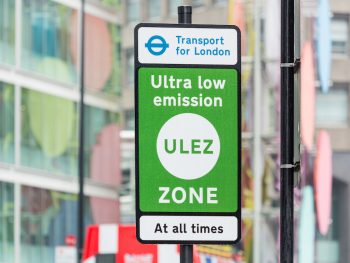One in 10 vans operated by fleets are not compliant with the London Ultra Low Emission Zone (ULEZ) – presenting significant problems when the scheme is expanded next year.

Peter Golding, managing director at FleetCheck, said that many fleets were now running older vehicles that would have been in use before the pandemic and that it wasn’t unusual to have now six-year-old-plus vans in operation.
But the August 2023 expansion of the ULEZ – which will be deployed across all London boroughs, more than doubling the zone’s existing area – will impact such fleets.
Golding explained that to be ULEZ-compliant, vans needed to meet Euro 6 standards, which generally meant they were registered after late 2016.
He continued: “Looking at data drawn from across our customer base, which is quite heavily biased towards SMEs, 10% of vans still being operated won’t be able to be used in Greater London from next August. This is not a huge number but it is also not insignificant.”
And while FleetCheck said the ULEZ achievements in terms of improving air quality were to be applauded – the London-wide expansion will save 27,000 tonnes of CO2 a year – this development may deliver practical problems for fleets.
The fleet management software specialist has been advising its customers on their options and said affected fleets have two choices: either swap Euro 5 with Euro 6 vans within their organisation to put the right vehicles was in the right areas, or buy compliant replacement vehicles.
“Option A is perhaps becoming a little bit trickier thanks to the growth of low emissions zones across the country and will depend on the composition and needs of each fleet. However, option B is also relatively difficult at the moment because of production restrictions. Especially, replacing any kind of specialist light commercial vehicle could be difficult as manufacturers tend to be concentrating current production on simple panel vans.”
He added: “There’s no easy answer to this problem for the fleets affected but it is something that needs to be solved somehow and we are helping them to identify appropriate solutions.”

